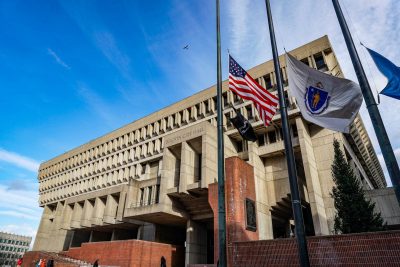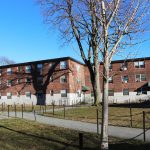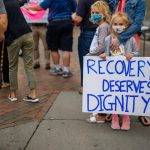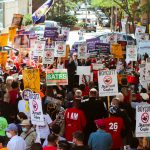Applications for the Mayor’s Youth Council 2021-2022 term opened Monday for high school students in Boston. The program, which is receiving applications until June 18, is designed to promote youth civic engagement.

The 85 incoming teenagers in the MYC work in a group that replicates the committees of Mayor Kim Janey’s cabinet such as those in public health, civic engagement, and workforce and economic development, according to a Monday press release.
The MYC has the opportunity to meet with city officials in different departments, organize meetings in Boston neighborhoods led by youth and give policy recommendations for projects, said Mari Monahan, the civic youth engagement coordinator in the City’s Department of Youth Engagement and Employment and a supervisor for the MYC.
“We want to build relationships with Boston’s youth,” she said. “We also want youth to feel like they are a leader and that they are a voice for the youth of Boston.”
Major goals of the MYC include amplifying the youth voice in city government and educating them on civic processes to increase participation in local government, said Jeremy Kazanjian-Amory, senior manager of the engagement and outreach in the same department.
“Young people are incredible advocates, not only for other young people, but for families, for communities, for older generations,” he said. “Youth are not only doing a really good job at being able to articulate how decisions will impact them, but are also articulating those challenges they’re seeing in their communities.”
Members of the council are able to learn more about city governance and their representatives at a younger age as well as share that information with their peers, Monahan added.
The range in age eligibility also allows for diverse perspectives — issues on the mind of a 14-year-old freshman may differ considerably from those of 18-year-old seniors, Kazanjian-Amory said.
“There are freshmen who are passionate and eager and just raring and ready to go and want to make change in their community and will take it by storm,” he said, “the same way that there are high school seniors who had a breath of experience in high school that helps to inform them.”
The MYC application consists of an online form with demographic information and short-answer questions about community issues, team work, inspiration and role models and students’ goals for their time in the program.
The MYC selects teenagers from every neighborhood in Boston, as well as from different ethnic, gender and racial identities, which is crucial for representing the diversity of Boston’s youth, Kazanjian-Amory added.
“Experience that a young person has in Hyde Park is going to be different than Mattapan, is going to be different than East Boston, is going to be different than downtown Back Bay,” he said. “I think it’s really powerful for young people to be able to learn from each other about their different experiences.”
Civic engagement creates a “positive feedback loop” of action, stimulating future participation, said Kristian Lundberg, a researcher at the Center for Information and Research on Civic Learning and Engagement at Tufts University — an entity that researches youth engagement in politics nationally.
“It’s not a question of enthusiasm, whether young people are excited or not to participate, it’s much more a question of access and opportunity,” Lundberg said. “Are they given access to different entry points into civic engagement?”
Jaquell Sneed, the director of Boston programs at the Center for Teen Empowerment, said engagement can come in all forms, including attending City Council and local school board meetings, so young people can familiarize themselves with their elected officials and community leaders.
“No population of people should be left out of the conversation, and that includes young people,” she said. “Especially young people who are already marginalized in a lot of ways, thinking about the young people we work with specifically in Roxbury and Dorchester.”
The Center for Teen Empowerment has a Boston Community Action Team made up of young people and who most recently reached out to 2021 mayoral candidates, Sneed added.
“A lot of it is a mix of both the exposure to the process … to the actual individuals who are in those positions,” Sneed said, “and the broadened understanding of civic engagement as not just elected leadership but also the day-to-day actions in community.”
Participation in electoral processes also starts with high-quality elementary and middle school civics education, Lundberg said.
“The key really is to start early and to start building those civic skills from an early age,” Lundberg said, “so that young people, when they do turn 18, are able to vote, but also so that you sort of develop those civic habits over a long period of time.”
Lundberg added it’s “promising” to see programs like the MYC create space for youth, because participants in local governments are usually disproportionately white and older in age.
“There’s really very few spaces afforded to young people and particularly young people of color … to participate in local government,” he said. “Youth councils and creating structures for young people to participate can be really powerful.”
Kazanjian-Amory said Janey becoming Boston’s first female mayor and first mayor of color makes this an exciting time for young people to get involved in local government.
“So many young people are involved in community leadership in so many ways right now that go beyond MYC,” he said. “We’re just continually excited about partnering and working with other organizations to continue to offer opportunities for young people to remain engaged and bring that passion into the forefront.”




